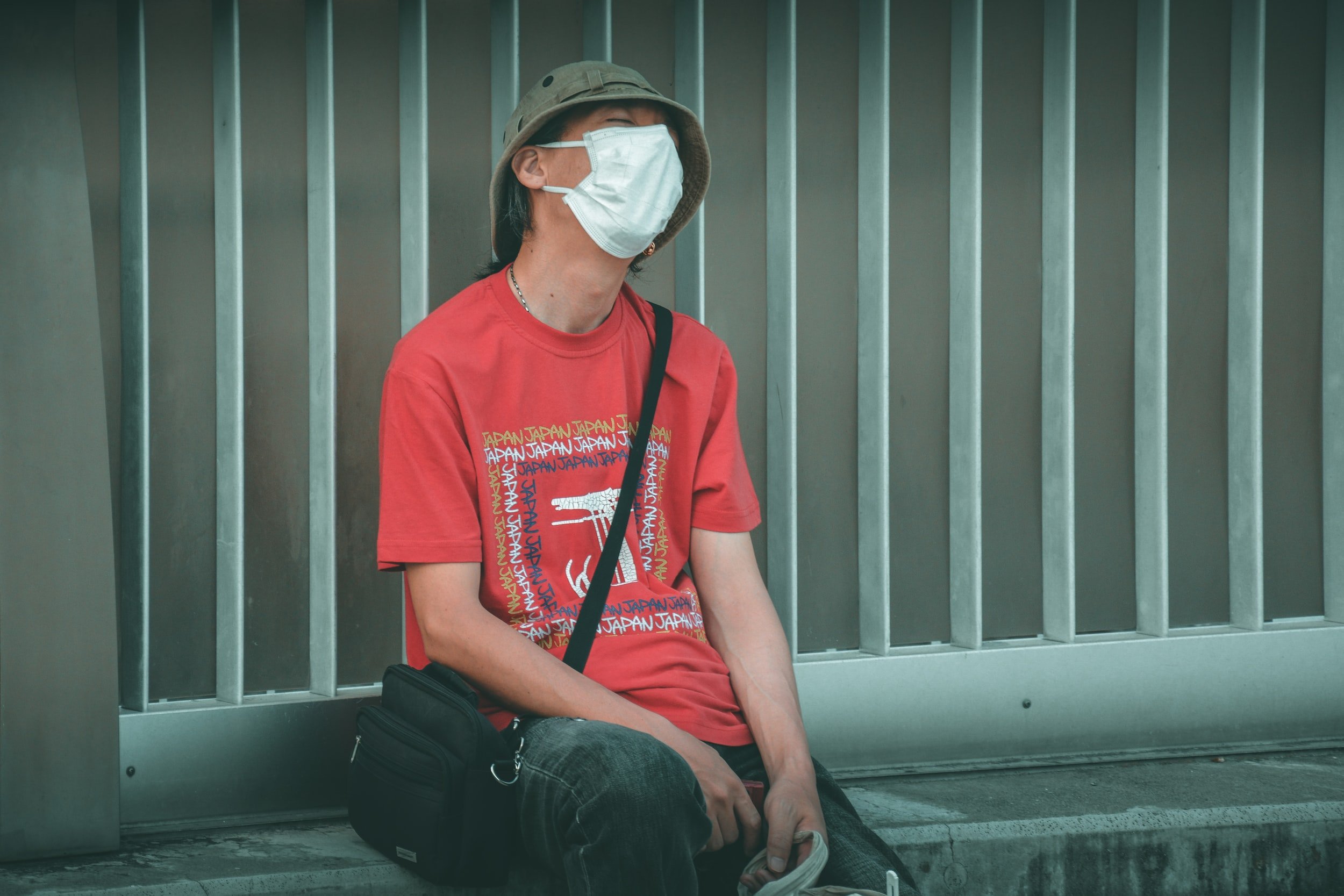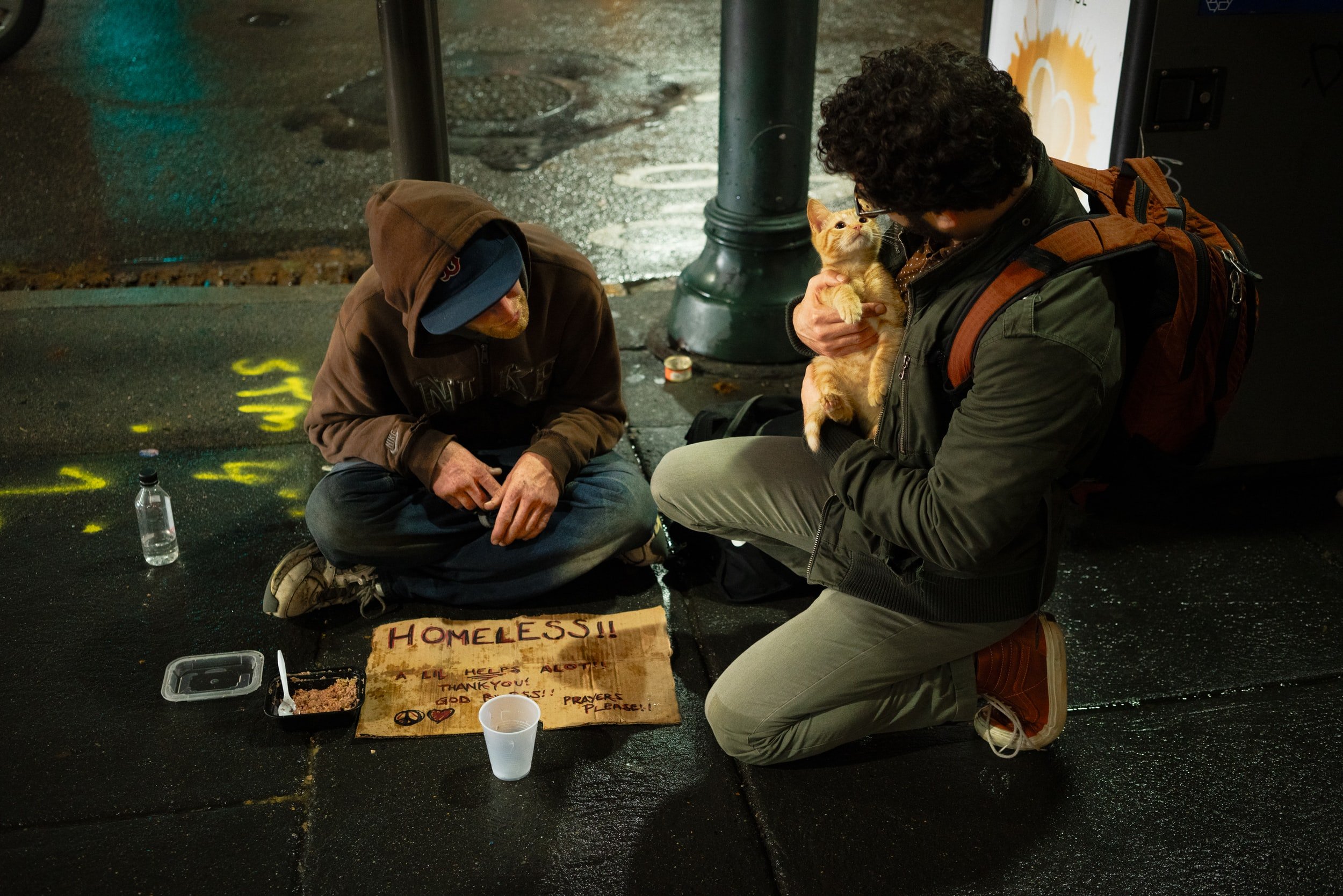COVID-19 as Chrysalis: Research Representation Considerations from the College Class of 2025
Street art in Philadelphia
by Ari Burstein, University of Pennsylvania Freshman
This post is from Ari Burstein, a student recommended by Dr. Sharon Ravitch. Dr. Ravitch is the March 2022 Mentor in Residence for SAGE Methodspace. She is a co-author of Qualitative Research: Bridging the Conceptual, Theoretical, and Methodological.
“We are born and we die, and in between some of us will get the chance to change the direction of society for the benefit of the next generation.”
The college freshman class of 2025, part of the so-called ‘COVID-19 generation,’ is like no other freshman class before us.
We missed out on numerous high school experiences, spending much of the past two years on a continuum of pandemic isolation consisting largely of learning online with some in-person learning requiring masks and social distancing restrictions. Most of us ended high school remotely, many without ceremonies or face-to-face closure with friends, teammates, teachers, or coaches. We’ve given up and deferred a lot and missed out on important events and rites of passage, often to keep relatives and community safe from COVID.
While this may at first seem negative, considerable good has emerged. We’ve grown from the struggles, gaining perspective on what matters most in life, including increased appreciation for social interaction. Understanding the ways we’ve changed is an important consideration when researchers query and represent us, now and in the future.
The metaphor I use to describe the COVID-19 experience is a chrysalis—the protective outer layer or covering of a pupa, a sheltered stage of growth. While growing in a chrysalis is intense (the organism liquifies prior to its transformation), it can be said that it also protected us from aspects of high school life (e.g., school shootings, work-life balance), giving us time to shed old parts of ourselves, transform into, and emerge as college students this past August. Like a butterfly taking flight after transforming itself, we’re emerging from the pandemic with new and fortified wings, stronger for this unusually difficult time spent in our chrysalises.
In this post I reflect on my own experience alongside those of peer freshmen across U.S. college campuses. Data were collected through 10 focus groups conducted over two months in-person and via Zoom using a combination of purposeful and snowball sampling to identify diverse demographics. While this is a small data set for a large population, it underscores the importance of understanding the temporal nature of our emerging identities in research on us now and going forward. Below are themes that emerged from data analysis, reflection, and discussion with Class of 2025 peers:
We’ve seen up close how inequalities shape life experiences. Most of us already knew about inequality. But we saw it up close in the trial by fire of forced online learning, which put issues of inequality among us in plain view. Attending school online was promised to be an educational equalizer, but quickly proved it would exacerbate inequalities. Differences in access to Wi-Fi, technology, adequate living spaces to attend online classes, and digital literacy skills, added to online challenges for many. In my own urban public school, I observed that privileged students like myself were able to excel, regardless of circumstances, while less privileged students including many of my friends, classmates, and wrestling teammates faced growing challenges. I saw my friends, with faulty or no Wi-Fi, stressed and struggling families, and lack of financial resources, struggle academically and fall behind. I watched them be forgotten by teachers who were overwhelmed and underprepared because they were not adequately supported for online teaching. I saw my peers falter without in-person connection and individualized attention. All this happened in school while unquestionable data on global warming, racialized police brutality, and anti-Asian violence were being largely ignored by leaders. These experiences hurt us and changed us from being passive education consumers to becoming active creators of social change. We’ve seen a lot up close, we’re not naive about issues of structural racism, gender discrimination, and the environment—and, perhaps most importantly, about how these issues are interconnected. Region, identity, and social circle affect this as do politics.
We’ve faced a matrix of mental health issues. Observing the unfolding aftermath of two years of a pandemic including social isolation, illness, loss, and grief, a new understanding of the epidemics of loneliness and mental health downturns has emerged in public discourse (Yashadhana et al., 2021). Like everyone else, our graduating class has experienced a wash of mental health issues, in ourselves and in the people around us, including increases in anxiety, depression, OCD, ADHD, and suicidality. Many of us had no privacy or physical space of our own, which made online learning (and life) stressful (Abramson, 2022). COVID-19 and civic responses to discrimination against Black and Asian Americans significantly impacted our day-to-day lives (Wang Yuen, 2020). We often felt like what we experienced wasn’t taken into consideration and there weren’t public outlets for us to share our stories while stuck at home without our normal outlets or activities. Our experiences of living through this time of global panic and civil unrest taught us about ourselves and each other in deeper ways than would have otherwise been possible or necessary. This created increased awareness of mental health issues and the need to notice signs of distress in ourselves and each other. We learned that self-care needs to include community care, disability inclusion, reckoning with broken systems (Pavao, 2020). Many of us have turned to therapy, meditation, athletics, activist and faith communities during this time because we realize we need tools to build healthier ways forward.
We’re becoming the change we wish to see in the world. Many of us have worked to affect change during the pandemic including physical protest, social media protest, activism, allyship, and working to better ourselves and making positive change around us. As we engaged in civic action some of us still needed to take SATs, which were repeatedly canceled, and write college applications during a competitive and stressful admissions cycle without college visits or tours. This happened online, with little space to reflect or discuss; it opened our eyes to the fault lines of the education system such as the realization that standardized admissions testing is not necessary (Pavao, 2020). As we began college, the pandemic continued to change the way we could move, take classes and socialize, how we were tested, literally and figuratively. We learned that we need to show up for ourselves and each other since no one is coming to save us but us. Watching the greed of our leaders throughout the pandemic has been catalytic. And as much of the world slips back into totalitarianism, we see that we need to become solutions to clean up a mess we did not make but have an urgent responsibility to fix.
Considerations for Researchers from the Class of 2025
Youth voices and experiences are often disregarded or minimized; this is especially true for the voices and experiences of youth from marginalized identities and groups. What follows are considerations for researchers relating to the college class of 2025:
We’re unique and diverse and we know our diversity is our strength. We have intersectional identities and, unlike many adults around us, understand what this means, i.e., that different parts of our identities meet social structures to magnify inequity. We know that diversity of thought means more solutionary thinking and informed action.
Social media is an organic part of our lives. We navigate a whole social universe online. We use it to stay connected, see what people are up to, share what we’re up to, see what’s happening, make plans. We get our news from social media which gives us access to limitless information. Issues are that some information is unverified and people can be performative and inauthentic.
Personal space and boundaries have changed for us in a pandemic that defined our formative years. We’re still learning what these changes, including in our understanding of hygiene and bodily safety, mean for us socially.
We’re growing up amidst intense global uncertainty including environmental catastrophe from global warming, intensified political strife and military aggression, a troubled economy and crumbling infrastructure. These issues, and the lack of accountability around them, shape our orientation to our futures in unique ways.
Resist assuming who we are and what we care about. We’re still learning how to become who we are in a constantly changing environment and set of rules. We’ll see what this means for us throughout college and beyond, please be patient with us.
This list of considerations is, of course, incomplete. I urge researchers to take us up as a research topic. Dana Hutton’s words in The Art of Becoming: Creating Abiding Fulfillment in an Unfulfilled World speak to the cycles of growth in our lives: “We live our entire lives within chrysalises. As soon as we emerge from one, life sculpts another around us. Within manifest reality, everything is in a constant state of becoming.”
To the Class of 2025, let’s allow ourselves to confront our losses without guilt or remorse in our process of becoming. We have a lot to look forward to, and a lot to do to make the world better. We can manifest a new reality, together.
References
Abramson, A. (2022). Children’s mental health is in crisis: As pandemic stressors continue, kids’ mental health needs to be addressed in schools. American Psychological Association 2022 Trends Report. 53(1). 69-72.
Pavao, S. & Center for Marketing Research. (2020). College-Level Generation Z COVID-19 Impact Study: A Breakdown of the Effects of COVID-19 on GEN-Z College Students. Center for Marketing Research BayCoast Bank White Paper Series. UMass Dartmouth.
Wang Yuen, N. (2020). Anti-Asian Racism Is Taking a Mental and Emotional Toll on Me: It’s Exhausting. Self Magazine.
Yashadhana, A., Derbas, A., Biles, J., & Grant, J. (2021). Pandemic-related racial discrimination and its health impact among non-Indigenous racially minoritized peoples in high-income contexts: A systematic review. Health Promotion International.
Relevant Methodspace Posts














Interviewing participants in difficult or emotional situations? Learn from Bethany Morgan Brett and Katy Wheeler.